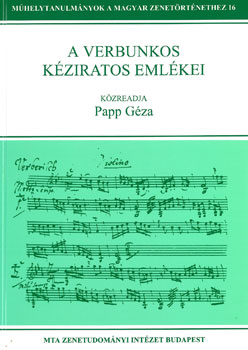Contemporary manuscripts from the 18th century were collated by Pál Péter Domokos and Géza Papp, and the manuscript sources of verbunkos in the broad sense were published by Géza Papp. Verbunkos manuscripts include many anonymous compilers and tunesmiths and several of the most well-known performers and songwriters/composers of the period such as János Bihari, János Lavotta, Antal Csermák, Ignác Ruzitska and Mark Rózsavölgyi. The most popular pieces from the repertoire of 19th century folk style art music – mostly comprised of the nóta songs – are also available in catalogue form in György Kerényi’s book Folk Style Songs. Kerényi has also edited a monograph about Elemér Szentirmay, who was one of the most productive 19th century composers in this genre. Verbunkos, slow and fast czardas which first appeared in the 1830s, and folk style art songs rapidly became widespread due to a sudden boost in the publication of scores and popularity of folk plays. An ideological and emotional framework for this occurred when the Hungarian nation emerged as a political and cultural entity. A search for national character and the attempt to create and strengthen it infiltrated every segment of society. National pride and the flourishing of culture co-occurred with the spreading of a general taste for romantic music and amateur music-making, or Hausmusik, among the developing Hungarian bourgeoisie.
The majority of Hungarian style works of distinguished composers have been catalogued and are available for research. One can get a true picture of how wide-spread style hongrois really was from the abundance of data in the catalogue compiled and published by Margit Prahács in 1943. Altogether she lists over one thousand composers and their works from outside Hungary. Her inventory verifies the fact that Hungarian style musical elements were popular all around Europe.
Papp, Géza: „Die Quellen der »Verbunkos Musik« – Ein bibliographischer Versuch.” A) Gedruckte Werke I. 1784–1823, Studia Musicologica 21 (1979), 151–217; II. Sammlungen 1822–1836, Studia Musicologica 24 (1982), 35–97; III. 1822–1836, Studia Musicologica 26 (1984), 59–132; IV. 1837–1848, Studia Musicologica 32 (1990), 55–224.


